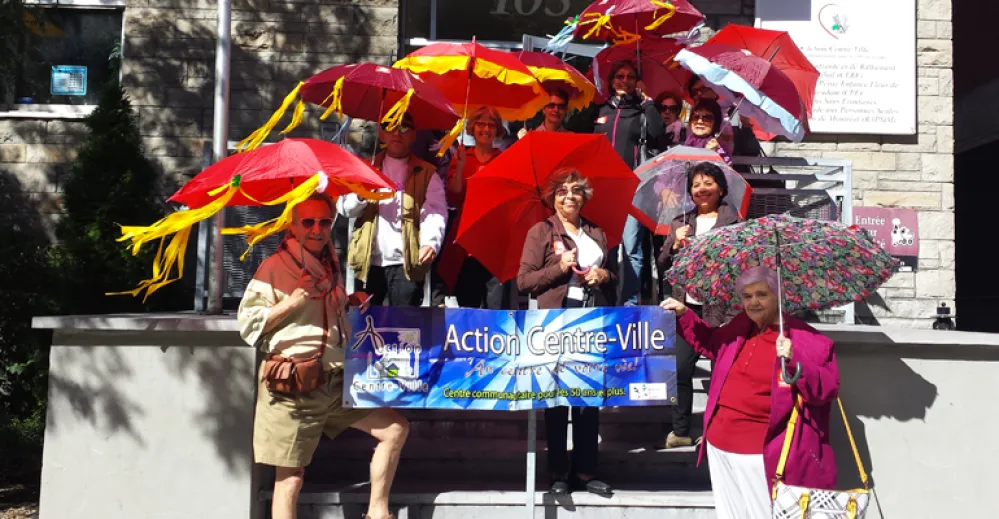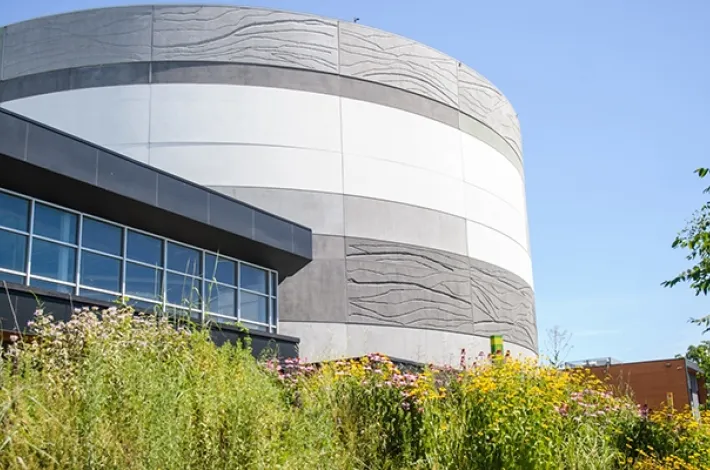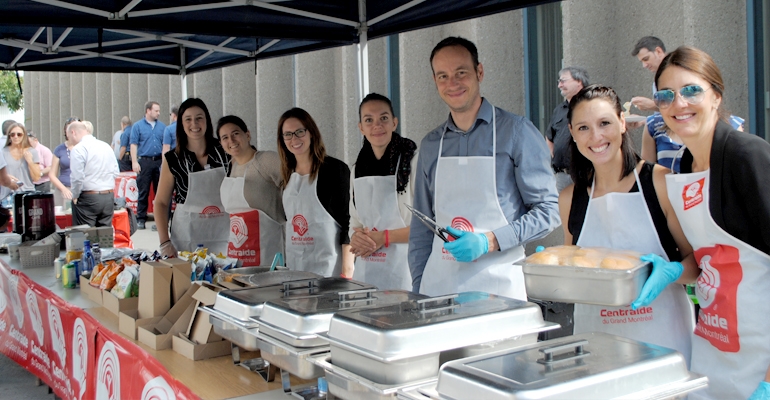
Fighting hunger in the Centre-Sud

For many residents in Montréal’s Centre-Sud, having enough to eat is still a luxury. Fortunately, a number of organizations offer meals and food aid.
Despite the neighbourhood’s abundant cultural life, ongoing poverty is still a reality in Mercier-HoMa. And this is exactly why free or inexpensive food aid services are in place. Carrying out their respective missions, these services aim to reach the largest number of people possible to help improve their living conditions.
Feeding those who have nothing
For those who are often homeless, mobile canteens offer meal services on the street.
The Salvation Army Street Ministry, for example, visits underprivileged neighbourhoods several times a month. Volunteers distribute food from the canteen at Place Émilie-Gamelin on the second and fourth Thursday of the month at 6 p.m. The same park welcomes the Mission of the Great Shepherd canteen on Thursdays at 7 p.m. and Fridays at 7:30 p.m. The canteen also stops at Viger Park on Saturdays and Sundays at 2 p.m., where 300 to 400 people—including those who are homeless or in crisis, and seniors living in isolation—receive a hot meal.
The oldest organization of all, the Accueil Bonneau—launched in 1877—opens its doors every day of the week to provide meals and shelter to those in need. Today, some 800 meals are served on a daily basis by volunteers who also take the time to establish bonds with the beneficiaries.
Intended for homeless and at-risk youth, Le Bon Dieu dans la rue cafeteria provides 40,000 meals a year. Founded by Father Emmett Johns (“Pops”) in 1988, the organization cares for young people’s immediate needs, and helps them acquire the skills and resources needed to lead more autonomous and rewarding lives.
Cutting prices to encourage autonomy
A number of food services are offered to a different category of people in need: those who aren’t homeless but who can’t afford to feed themselves properly. Asking them for a few dollars in exchange for food allows them to meet their personal needs while still maintaining their autonomy.
Meal cards sold by L’Itinéraire at a cost of $6 ensure that users eat well for less as well as develop the skills to achieve food self-sufficiency. The cards can be bought by the beneficiaries themselves, or given as a gift by anyone who wants to help them. They provide access to a full meal at Café L’Itinéraire or at other participating establishments (Comité social Centre-Sud, MultiCaf, Resto Plateau, Chic Resto Pop and The Lighthouse).

The Comité social Centre-Sud focuses on developing autonomous popular education by helping residents take control of their living conditions. The organization offers 200 hot square meals a day at an affordable price. A full breakfast, for example, costs $2.50, lunch is $2.75, a frozen meal to go is $3.50, and a sandwich is $1.
For seniors, Action Centre-Ville sells low-cost frozen meals as a complement to its community-based services to help these individuals maintain their autonomy and participate in community life.
Combating food insecurity
Many organizations offer affordable, quality staples to combat food insecurity and encourage citizens to eat well despite their limited means.
The Carrefour alimentaire Centre-Sud supports the development of a local, ecologically driven, socially cohesive food system. The organization distributes fresh fruits and vegetables at affordable prices to the neighbourhood’s poorest families. And every year, it hands out “Fruits de la solidarité” vouchers, thanks to financial support from various businesses.
Weekly food distributions are also carried out by Maisons Adrianna. For only $10 a month, people living alone receive a food basket every Tuesday, while families receive one on Thursdays. Founded in 1988 by Sister Aline Roy of Our Lady of the Holy Rosary, in Rimouski, the organization also offers affordable housing and activities for community development and integration.
Despite all these initiatives, food problems are a fact of life in the Centre-Sud. If you would like to support these organizations, simply click the links. Please note that many of these organizations—and several others too—are supplied by Moisson Montréal.

You may also like...





